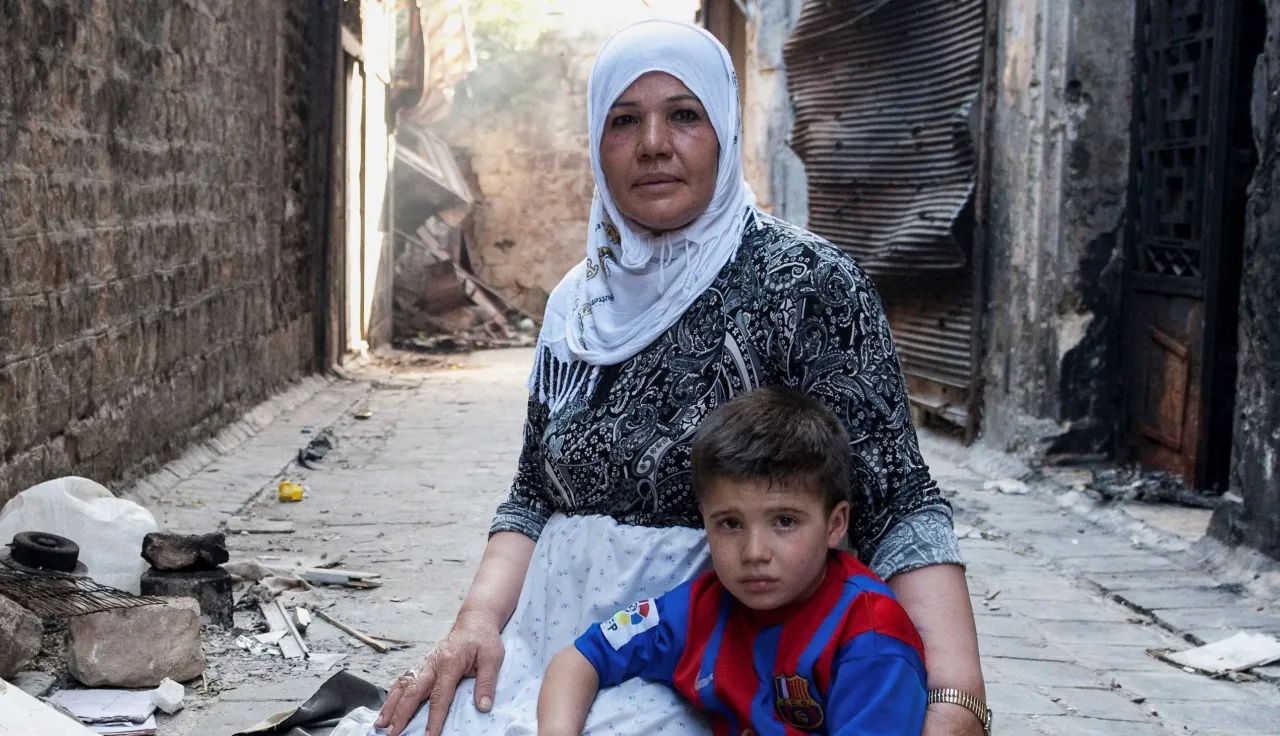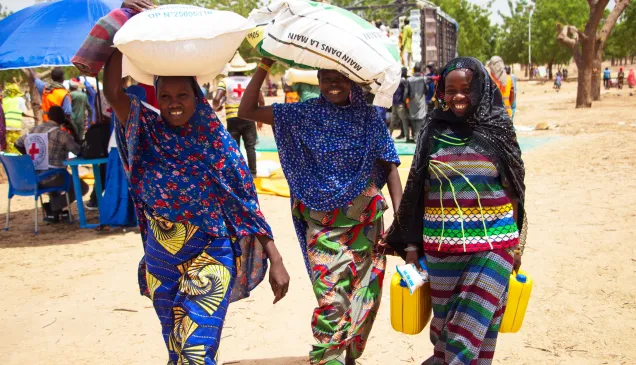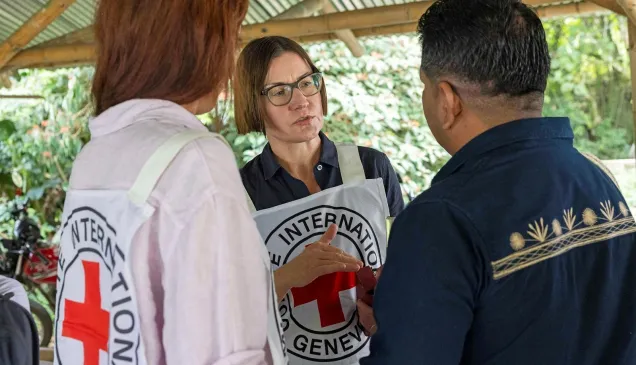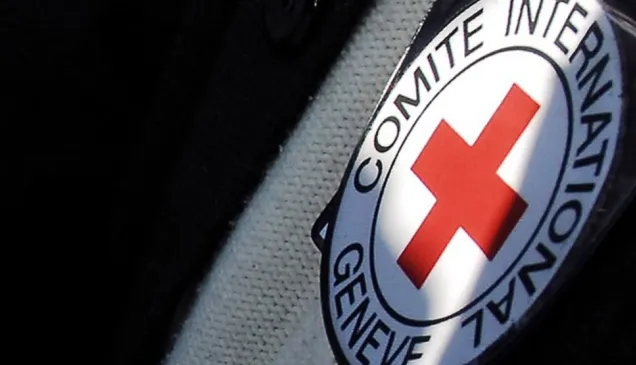ICRC Strategy 2024-2027: A compass for action for the next four years

The International Committee of the Red Cross' new institutional strategy for the years 2024-2027 is designed to respond to an ever-increasing number of humanitarian challenges.
The global socio-political landscape is undergoing significant transformations, departing from the post-World War II era and Cold War struggles. The world is becoming more multipolar, fragmented and divided, leading to growing and multidimensional confrontations.
The strategy reasserts the ICRC's central role of protecting and assisting people affected by armed conflict and other situations of violence. Our goal is to firmly uphold international humanitarian law in dialogue with states and non-state armed groups.
The challenges we face
- The proliferation of armed actors, combined with the high intensity of conflicts, presents significant security and safety challenges to humanitarian organizations. This is compounded by hateful speech and attitudes, misinformation and disinformation.
- In addition, new technologies, artificial intelligence, cyber warfare, autonomous weapons and the digitalization of conflict all create complex physical and digital battlefields, with blurred lines between the civilian and military domains.
- Furthermore, the accelerating and critical effects of climate change compound the already dramatic conditions faced by conflict-affected communities.
- Finally, funding for humanitarian work is experiencing significant shortfalls and a paradigm shift.
With this strategy, the ICRC asserts its clear determination to stand up for people during wartime – whether civilians or combatants – to ensure that their rights and protections under IHL are upheld. There is an urgency to rediscover the humanity in one another.
Our strategic orientations for the next four years
The ICRC embraces the profound changes taking place in terms of the challenges, perspectives and working methods that mark the world of humanitarian action.
We are setting priority orientations that reflect a determination to centre upon what lies at the heart of our mandate, with the belief that clarity of focus is the best way to prepare for a meaningful impact in uncertain times.
- Upholding the centrality of protection and our role as neutral intermediary
States and non-state actors fulfil their obligations under IHL and uphold the rights of individuals, thus preserving the lives, security, dignity, and physical and mental well-being of people affected by armed conflict and other situations of violence. - Promoting international humanitarian law as a global political priority
The human cost of war is reduced by upholding IHL, elevating it to a global political priority, and reinforcing the consensus surrounding the rules applicable to armed conflicts, as well as the limits imposed on the means and methods of warfare. - Enhancing the response impact in acute and protracted phases of conflicts, as well as other situations of violence
The specific needs of populations affected by armed conflict are addressed in a timely and relevant manner. The response takes into account the nature of the situation, the phases of conflict, the vulnerabilities and abilities of the affected people, and the capabilities of local and international actors. - Affirming our identity within the International Red Cross and Red Crescent Movement
The International Red Cross and Red Crescent Movement is a leading force for humanity and stands for principled, effective and cooperative humanitarian action and collective impact across the full spectrum of crises, from armed conflicts to natural and other disasters. - A new humanitarianism for a changing world
Profound political and societal changes at a global level, evolving paradigms around war and peace, and debates on the importance of supporting and enabling local humanitarian action necessitate a re-evaluation of mindsets, policies and practices.
Read the ICRC's 2024-2027 Strategy
(also available on our e-shop)



